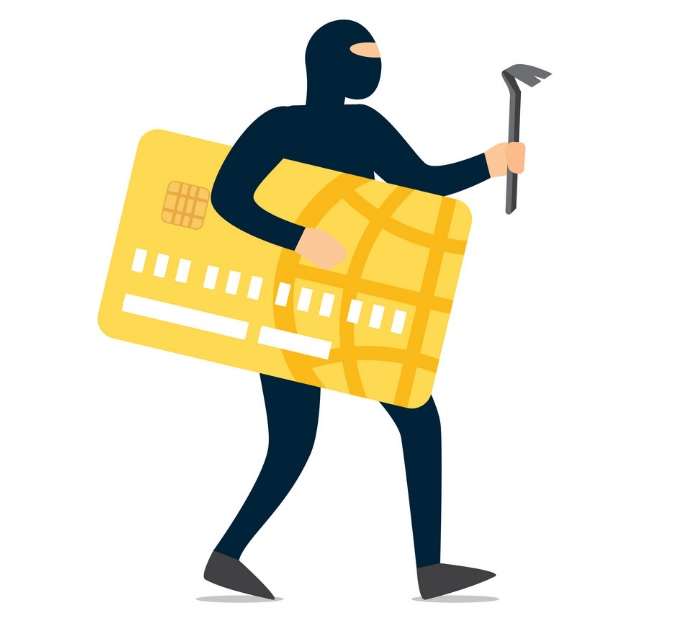Credit card fraud can take place in a variety of ways ranging all the way from a low-tech theft to high-tech hacking. It may also include risks like application fraud, lost/ stolen cards, account takeover, skimming, triangulation, etc.
You can protect yourself from becoming a victim of credit card fraud by taking the following precautions:
[toc]-
Always Keep a check on mobile alerts
It is important to subscribe to a mobile/ e-mail alert facility on your card to keep track of all your credit card transactions. You should read through the complete messages sent by your card provider on your mobile at all times to keep a check on any invalid transaction. If you notice any unauthorized transaction on your credit card, you should contact your customer care service immediately and report the faulty transaction.
-
Review your monthly statement
In addition to checking your mobile/ e-mail alerts, you should also review the monthly statements of your credit cards promptly. If you notice any unusual transaction in your statement, report it to your card issuer within 30-60 days of receiving your credit card statement. If you find it difficult to remember all your purchases, then it is better to save all your receipts and compare it with your credit card statement each month.
-
Exercise caution while you swipe your card
Whenever you swipe your credit card at any POS terminal, make sure that you keep your eye on your card and that you get it back before you walk away. Never sign a blank receipt. You can draw a line through any of the blank spaces above the total amount mentioned on the receipt.
-
Internet Fraud
To prevent Internet fraud,
- always keep an updated anti-virus on your computer or laptop.
- Whenever you enter your credit card details over 1.e internet, always make sure that the URL address of the website should start with HTTPS (where ‘s’ stands for security) and not HTTP. Also, if there is a sign of a closed padlock located in the right corner of the screen, it signifies a secure website.
- Before doing any transaction from online retailers and merchant websites, you should check for safe digital certificates that can authenticate the website.
- For example: Check for text such as Verified by MasterCard, VeriSign, etc. as these are popular authentication service providers that help users to make sure that the website they are dealing with is genuine and not some fraudulent imposter.
-
Always verify the source and use a secure network
You should not go to your bank or credit card account online by clicking on links from an e-mail. It is advisable to visit your net banking or credit card account through the Bank/ Credit Card issuers’ website. Avoid doing financial transactions while you are using a public computer or public Wi-Fi connection. If you are sharing a computer with any friend or colleague, then it is advised that you use a virtual keypad while entering the net banking/ credit card password since this ensures security even if your computer is infected by any virus.
-
Notify your card issuer for address change
Your credit card provider should have your updated information at all times. Always ensure that you inform your credit card provider whenever you update your address, phone number or email.
-
Do not share your credit card PIN or OTP
Do not share your credit card details, particularly the password and PIN, with anyone (not even the customer care executive). Always ensure to enter or key-in your IPIN over the conversation with customer care and do not spell it out as this can lead to the sharing of sensitive information over the phone with a third party.
-
Use chip-based credit cards
A chip card is a credit card with an embedded microchip. The chip is encrypted and provides enhanced security and protection to help guard against fraudulent transactions. When you use your chip card at stores or restaurants that have chip-enabled terminals and at ATMs, the system validates the chip ensuring the security of your transaction. These cards offer better security than credit cards with black magnetic stripes and, thus, make changing or copying the data extremely difficult. So, the chances of data being misused while swiping the card are very remote.
-
Always shop from reputed merchants online
Doing online transactions from reputed merchant websites ensures that your security is not compromised. A lot of small vendors may not have adequate security mechanisms in place that could lead to the compromise of all user sensitive information in the future. Also, check for a confirmation email or mobile alert once you complete any financial transaction to make sure that the money you have paid has reached the merchant.
-
Notify your card issuer before you travel overseas
Whenever you travel overseas, your card is exposed to risks of skimming or cloning data, i.e., your card’s magnetic stripe is recorded when swiped at a machine. This information is then used to make a duplicate or cloned credit card. However, if you inform your credit card issuer before your travel, they can insure themselves against the risks beforehand, keep track of your credit card and provide you with global assistance during your trip.


